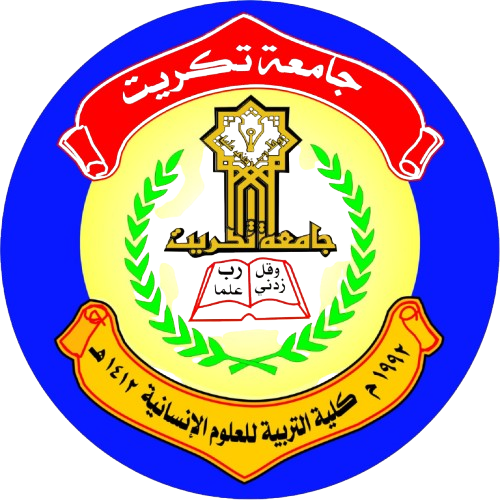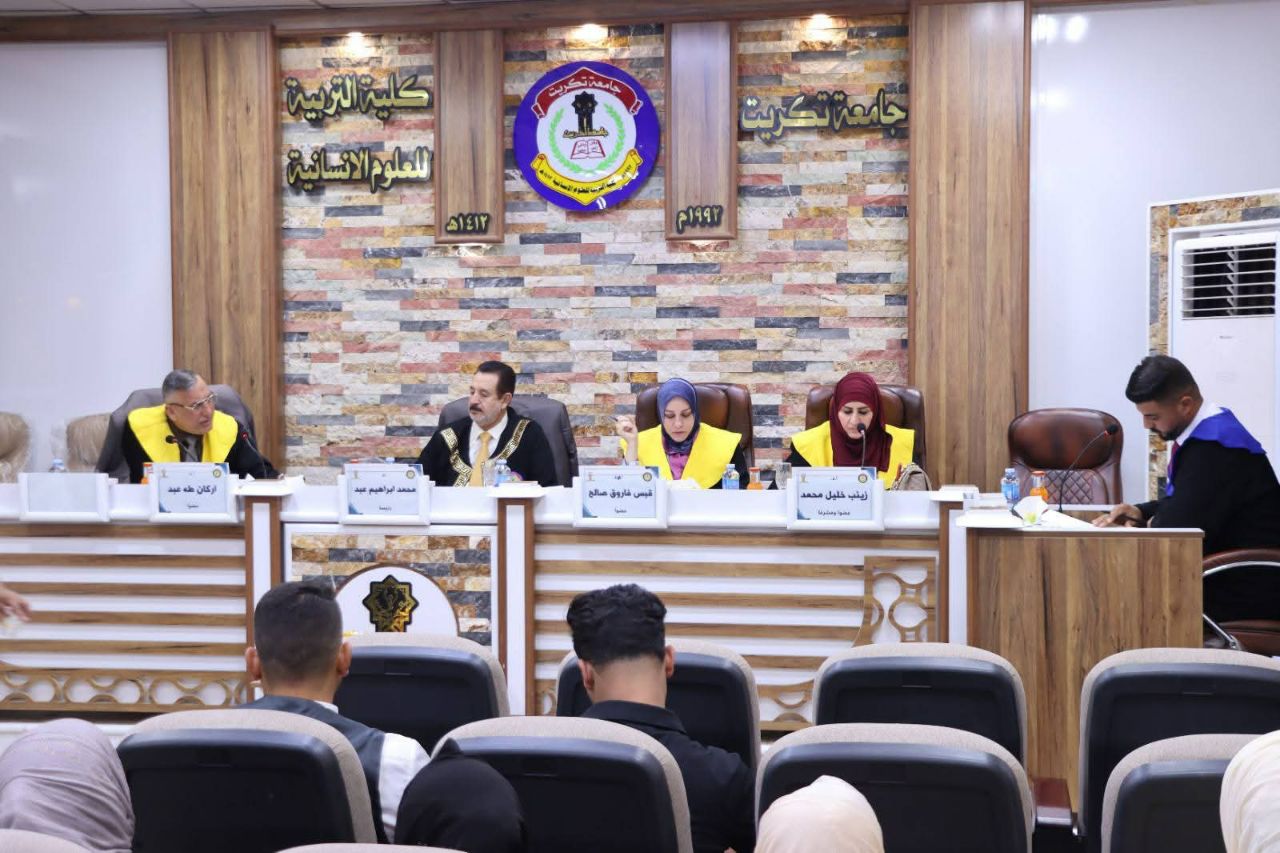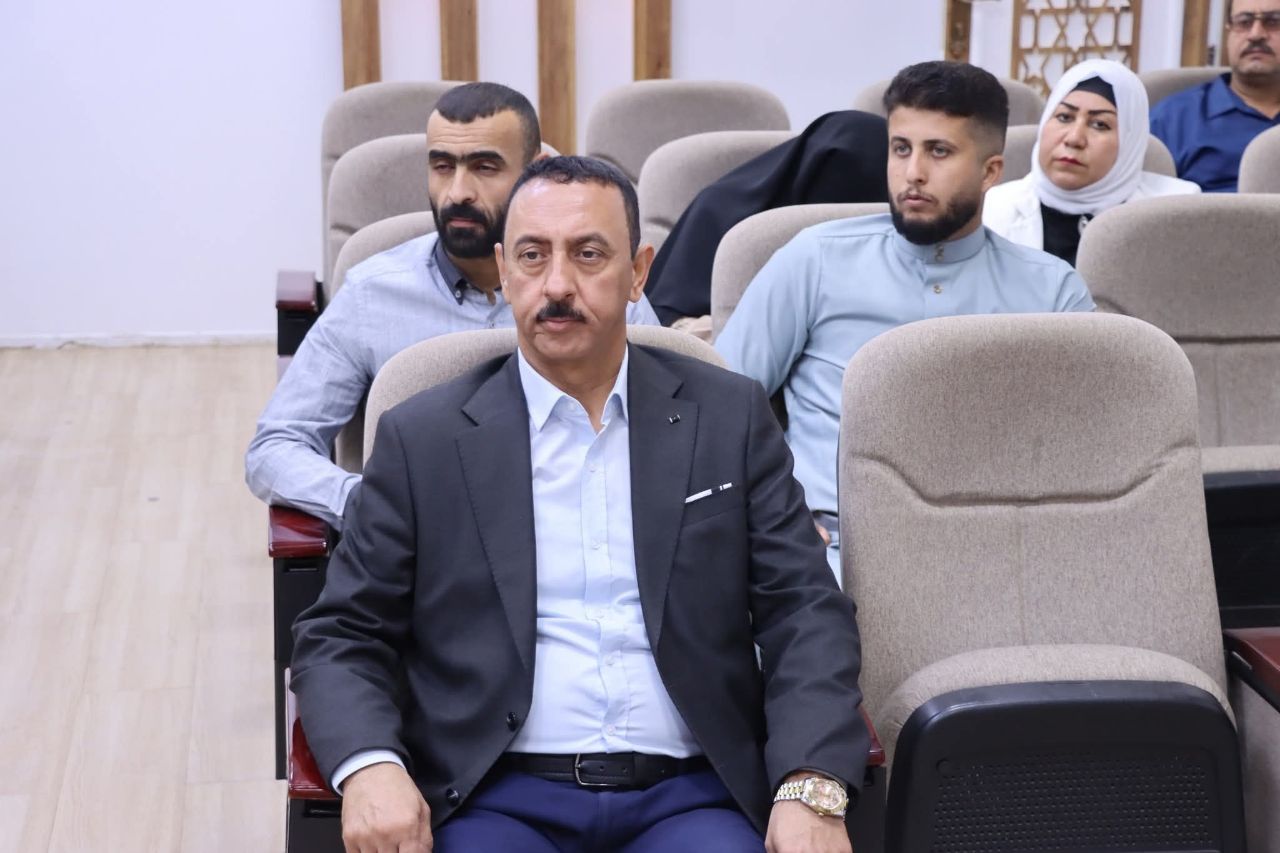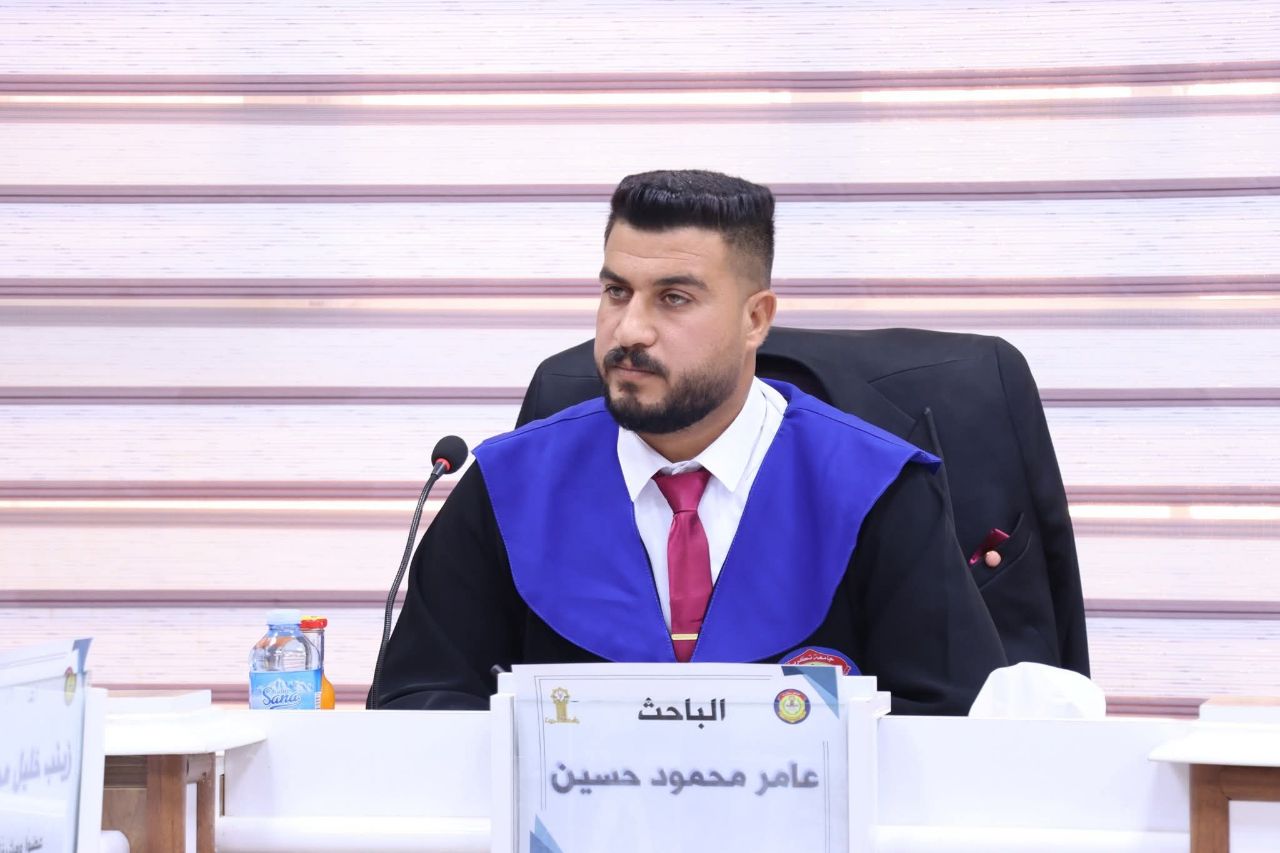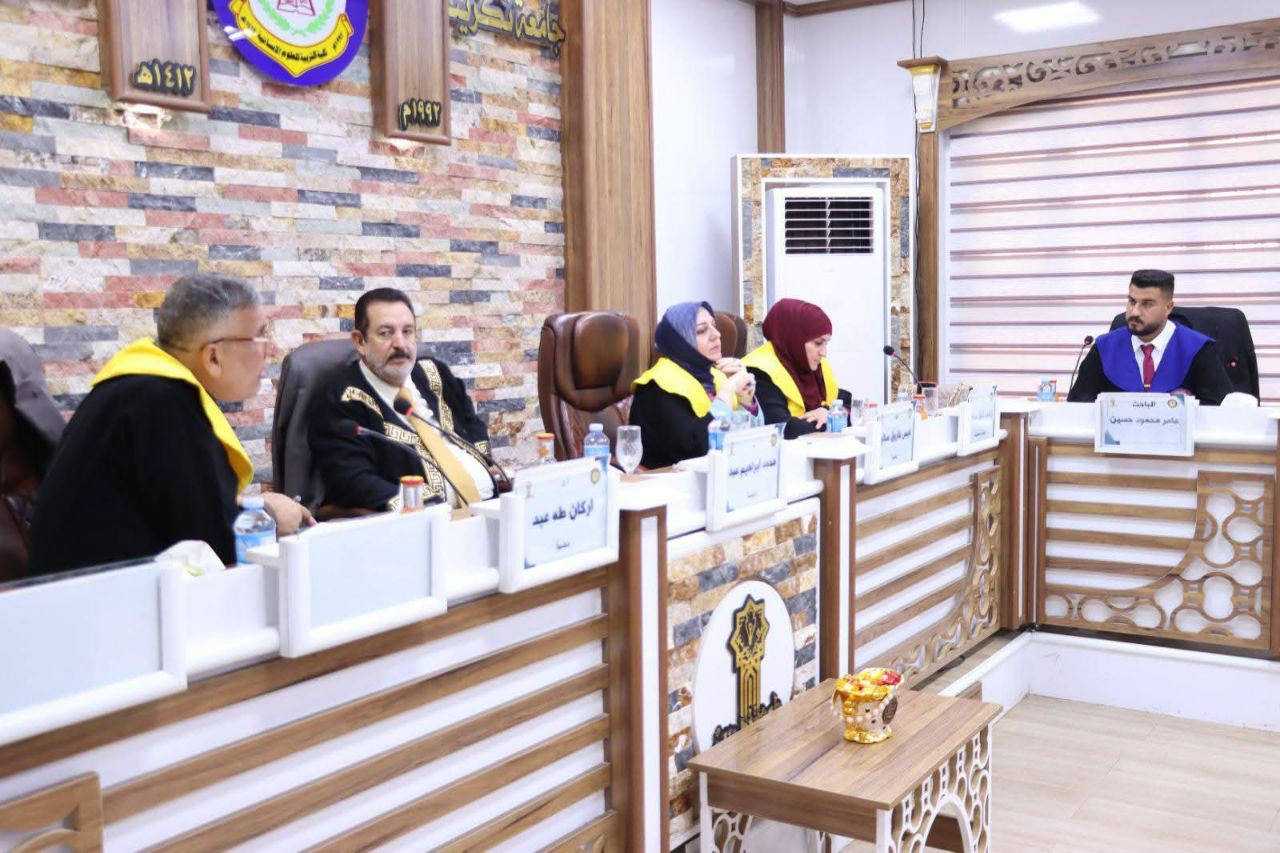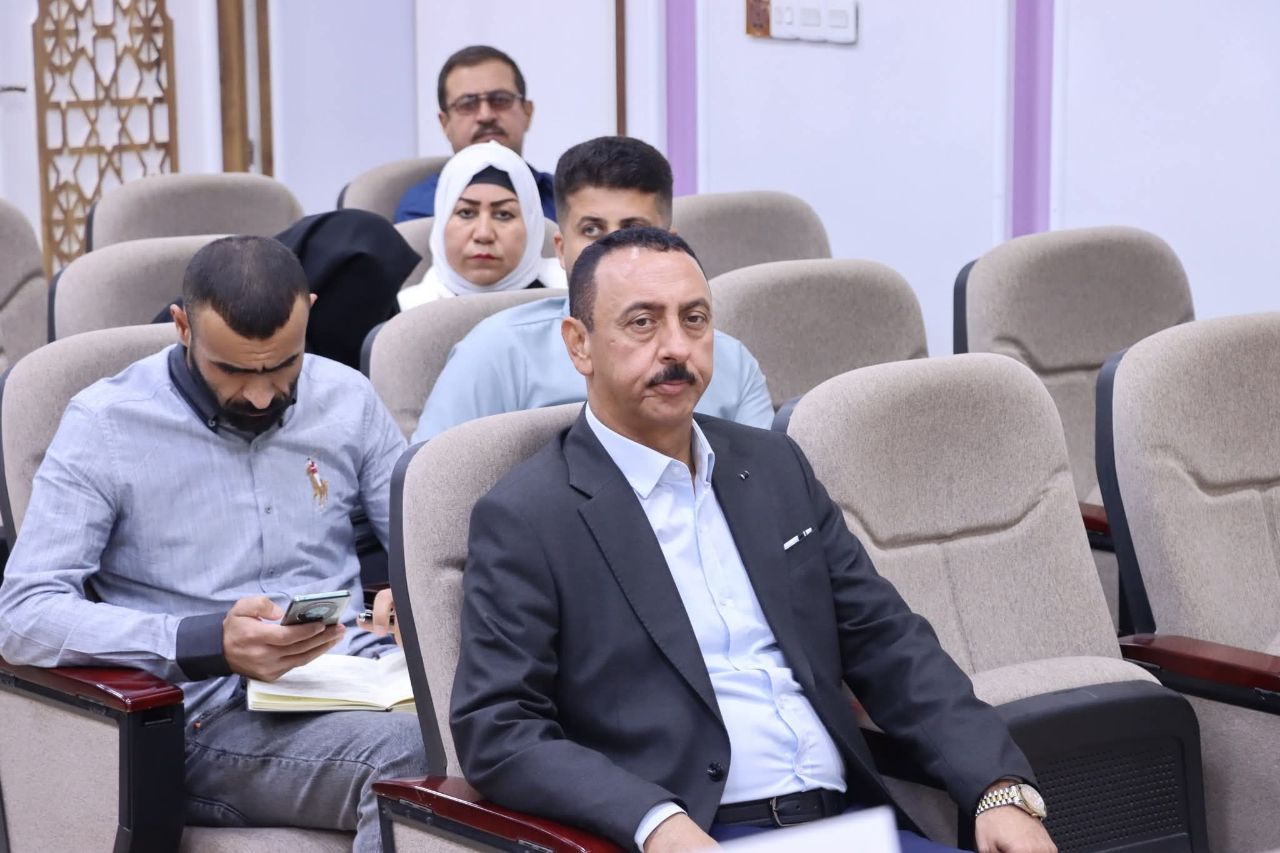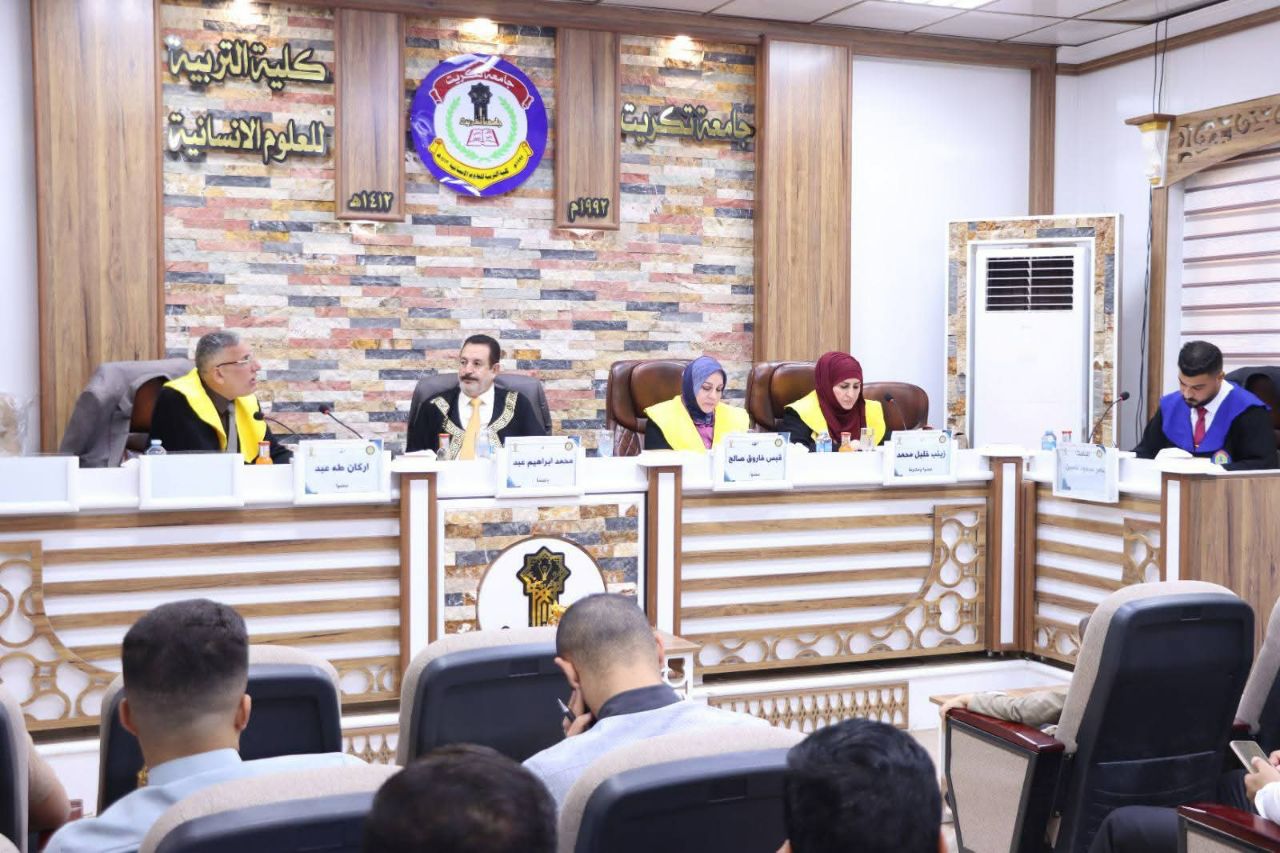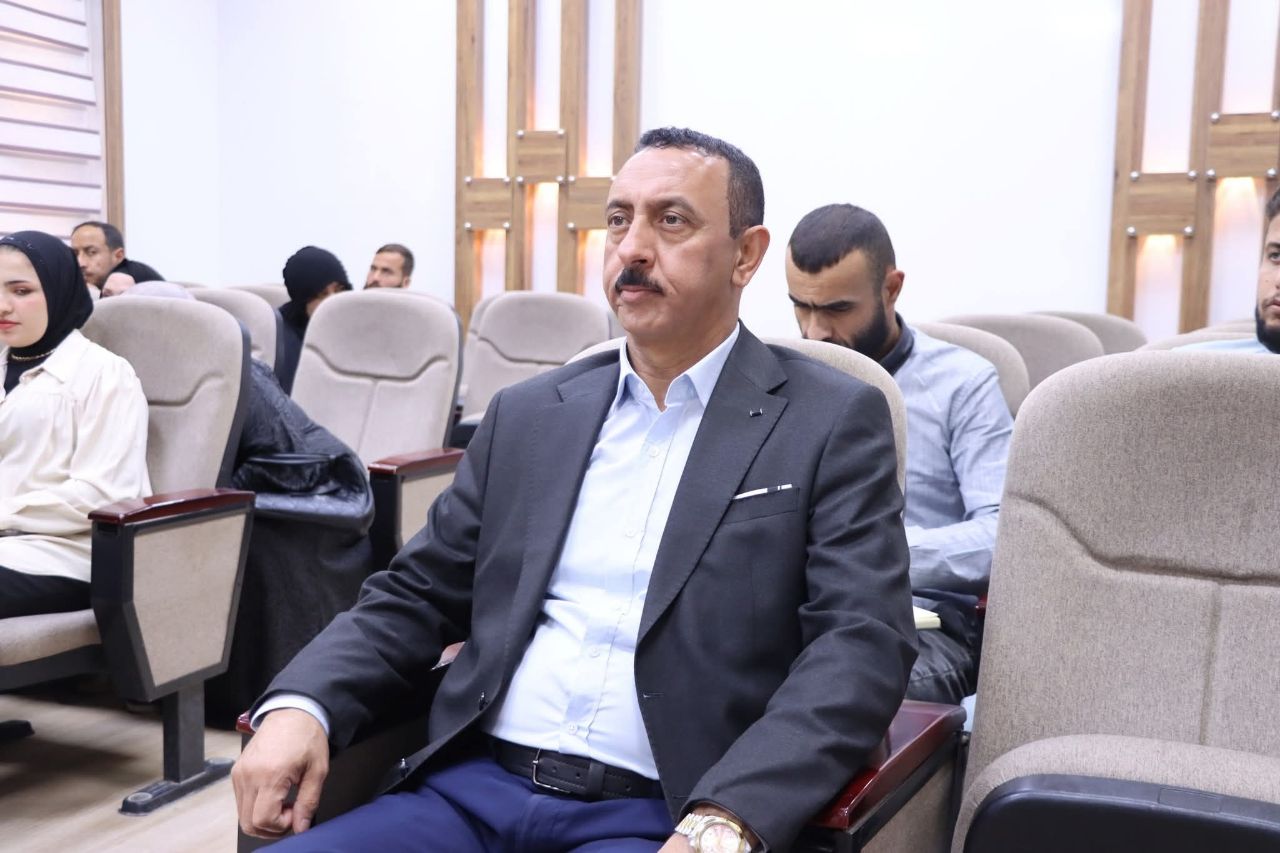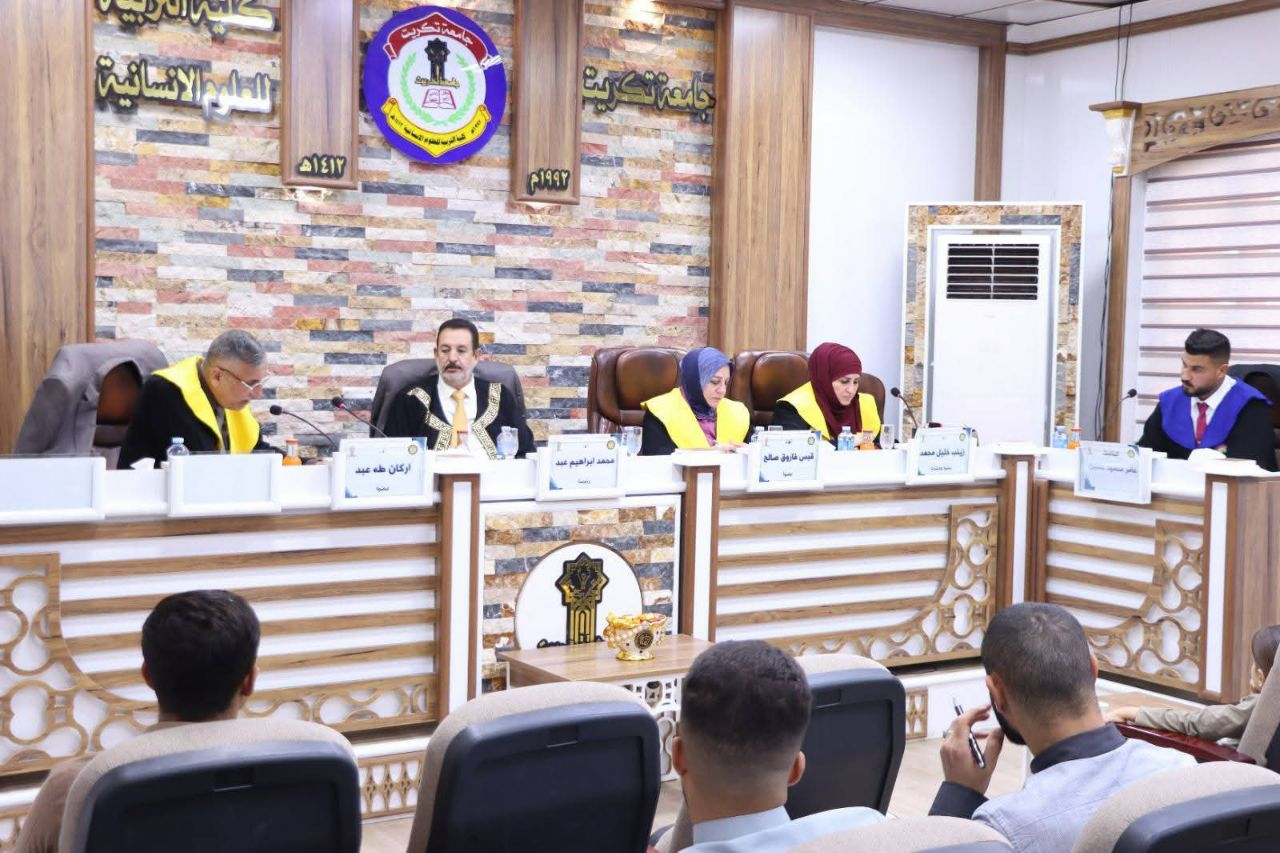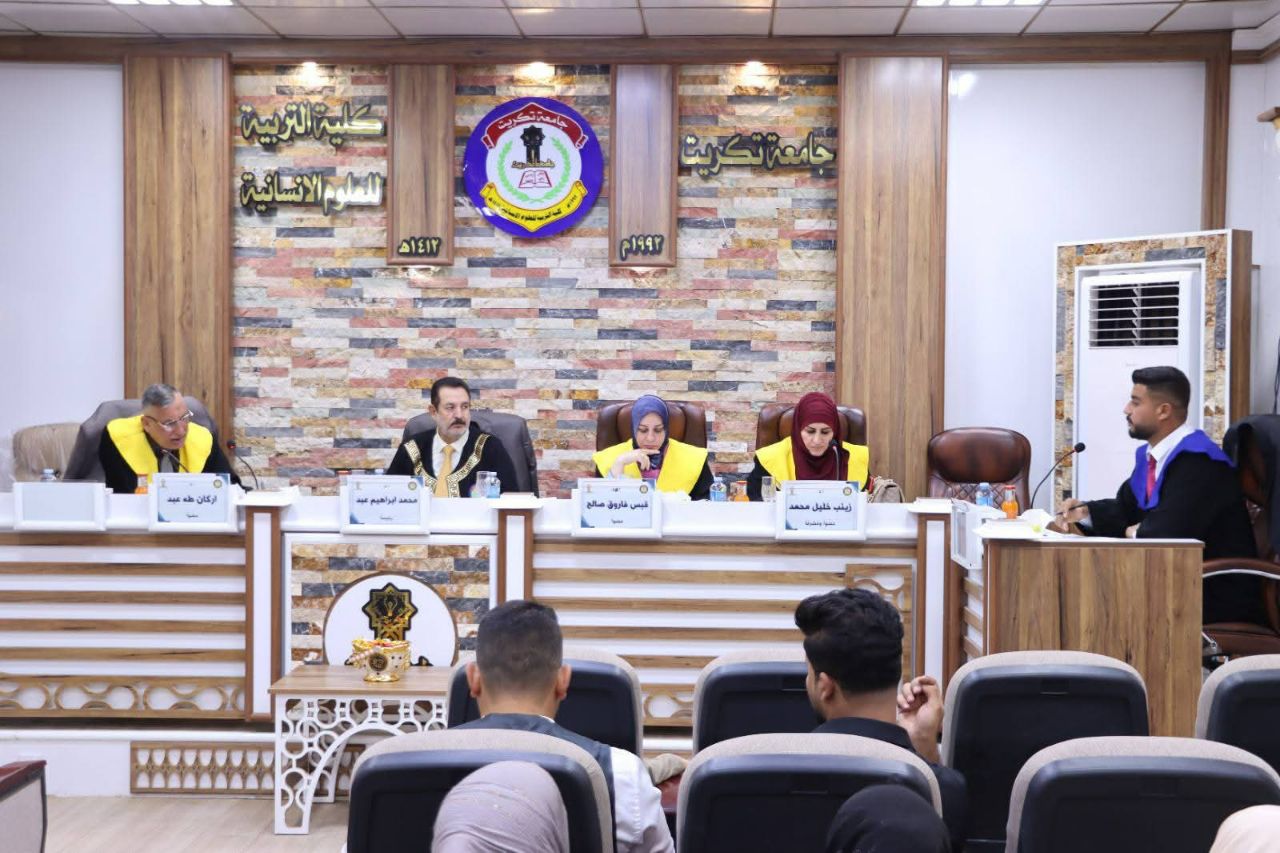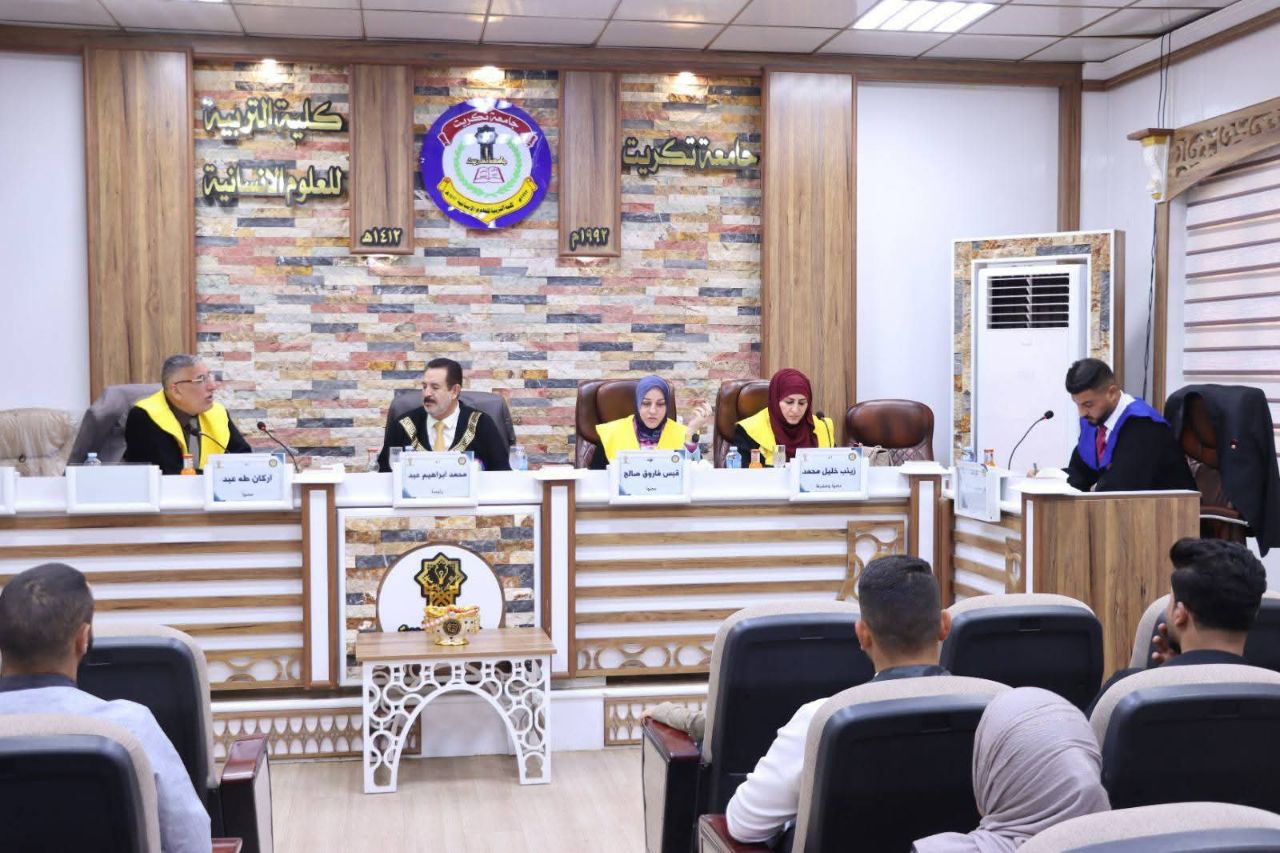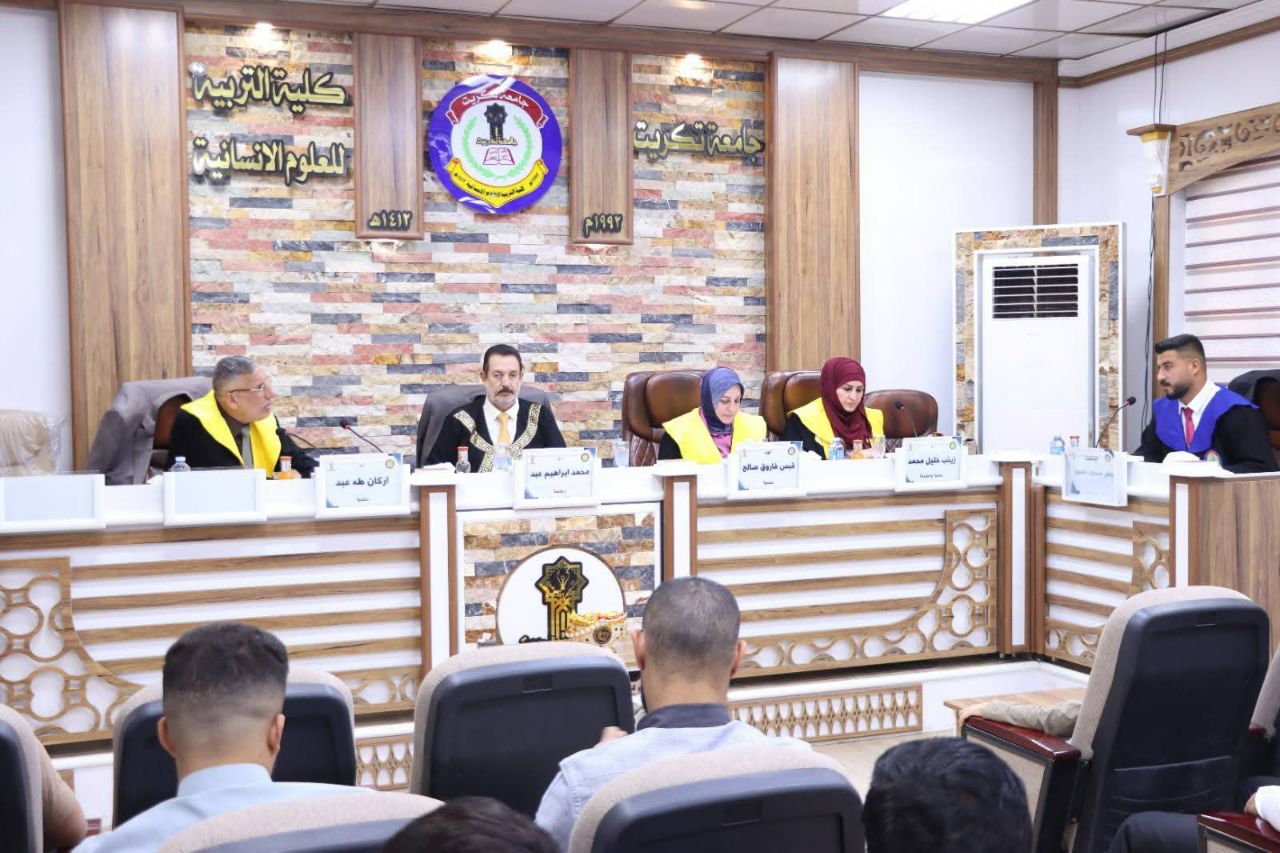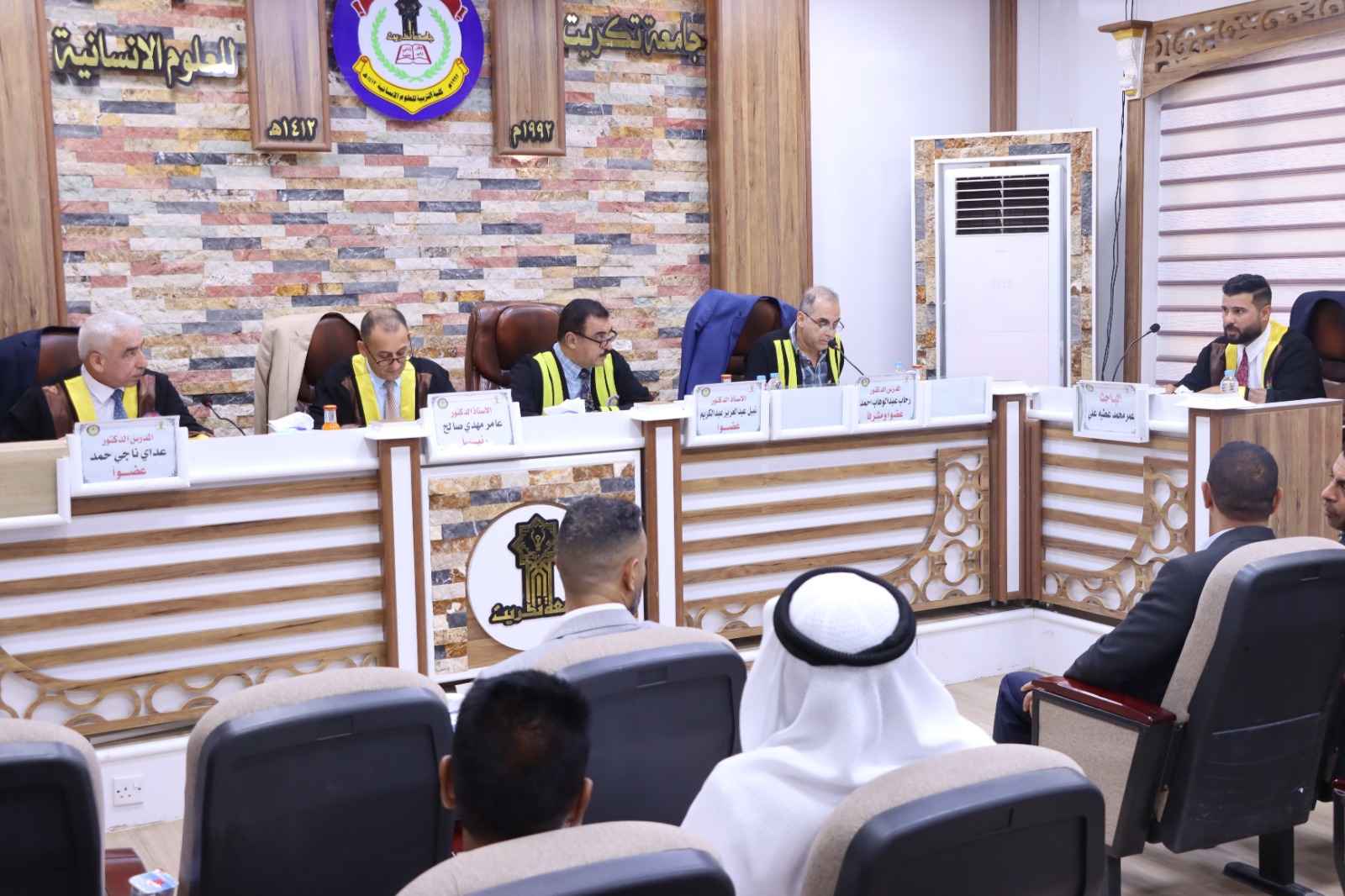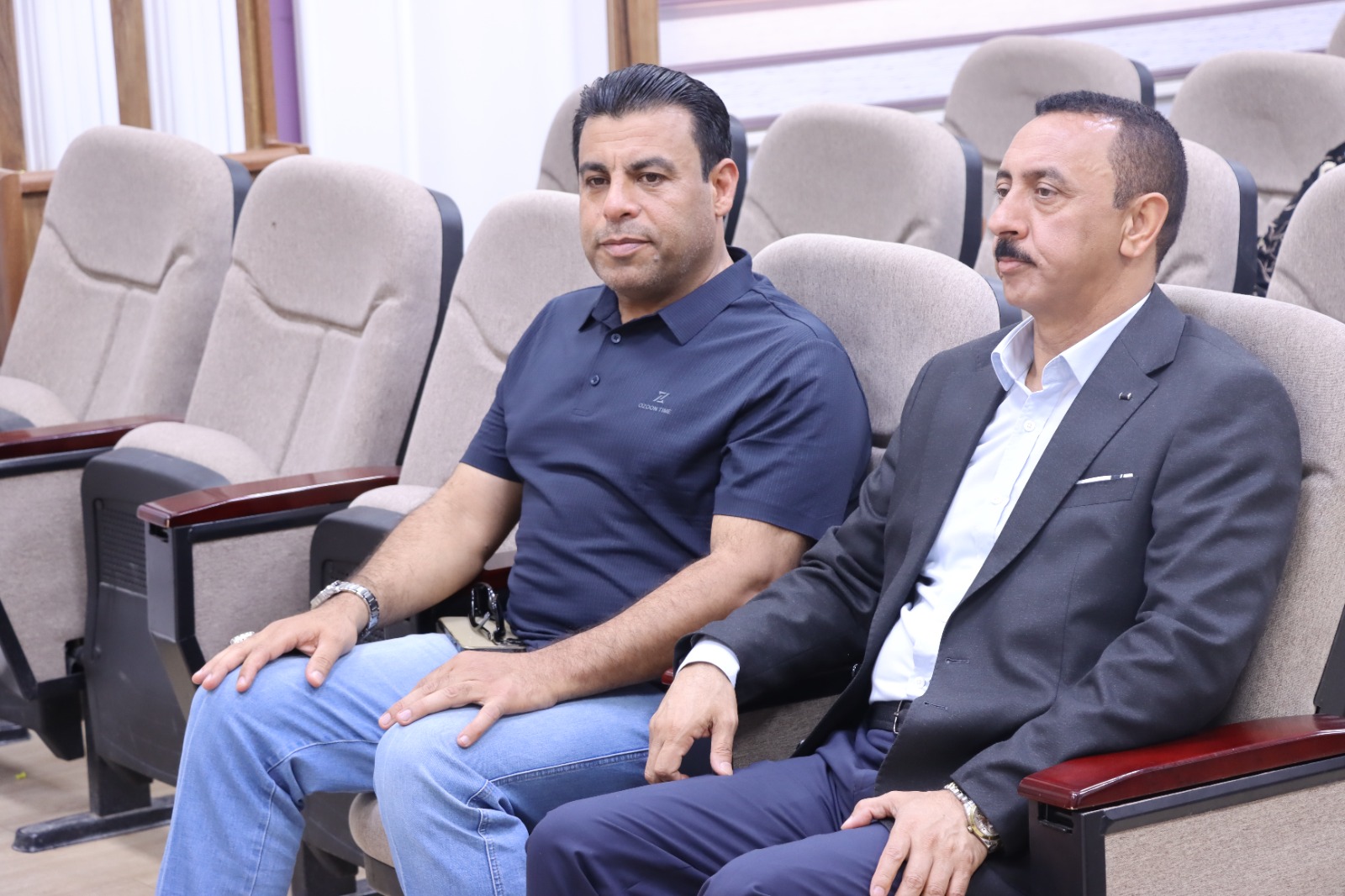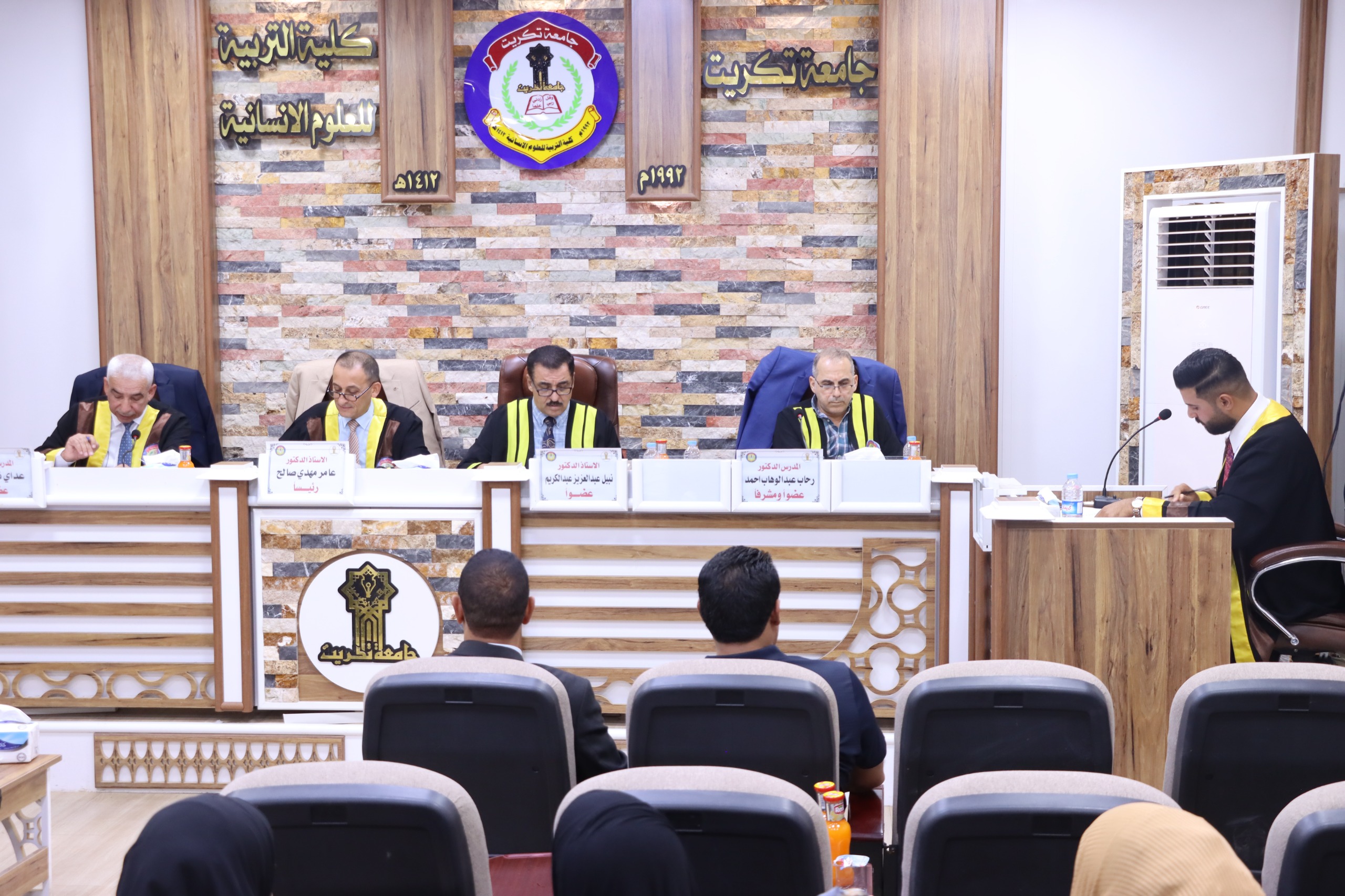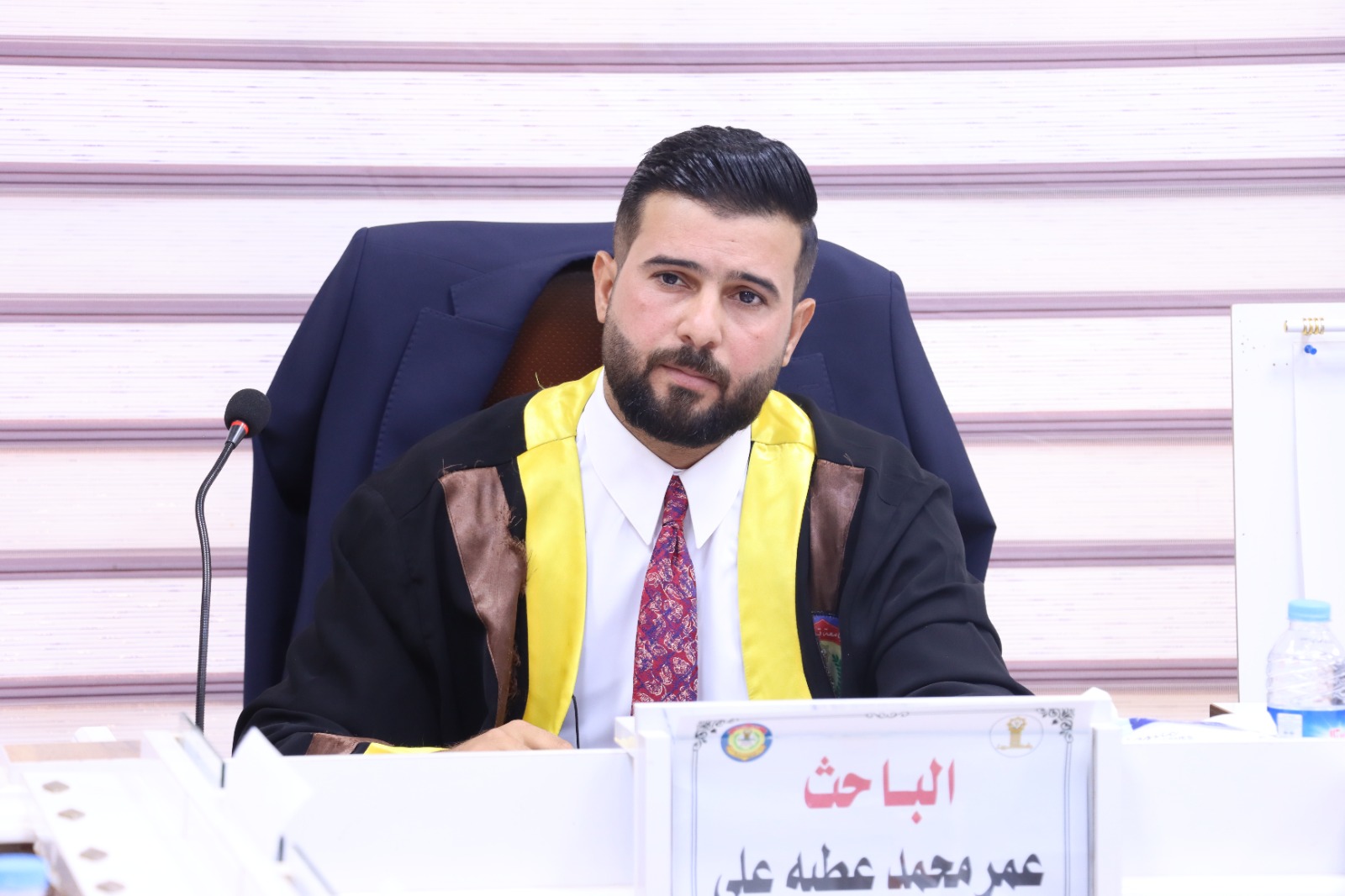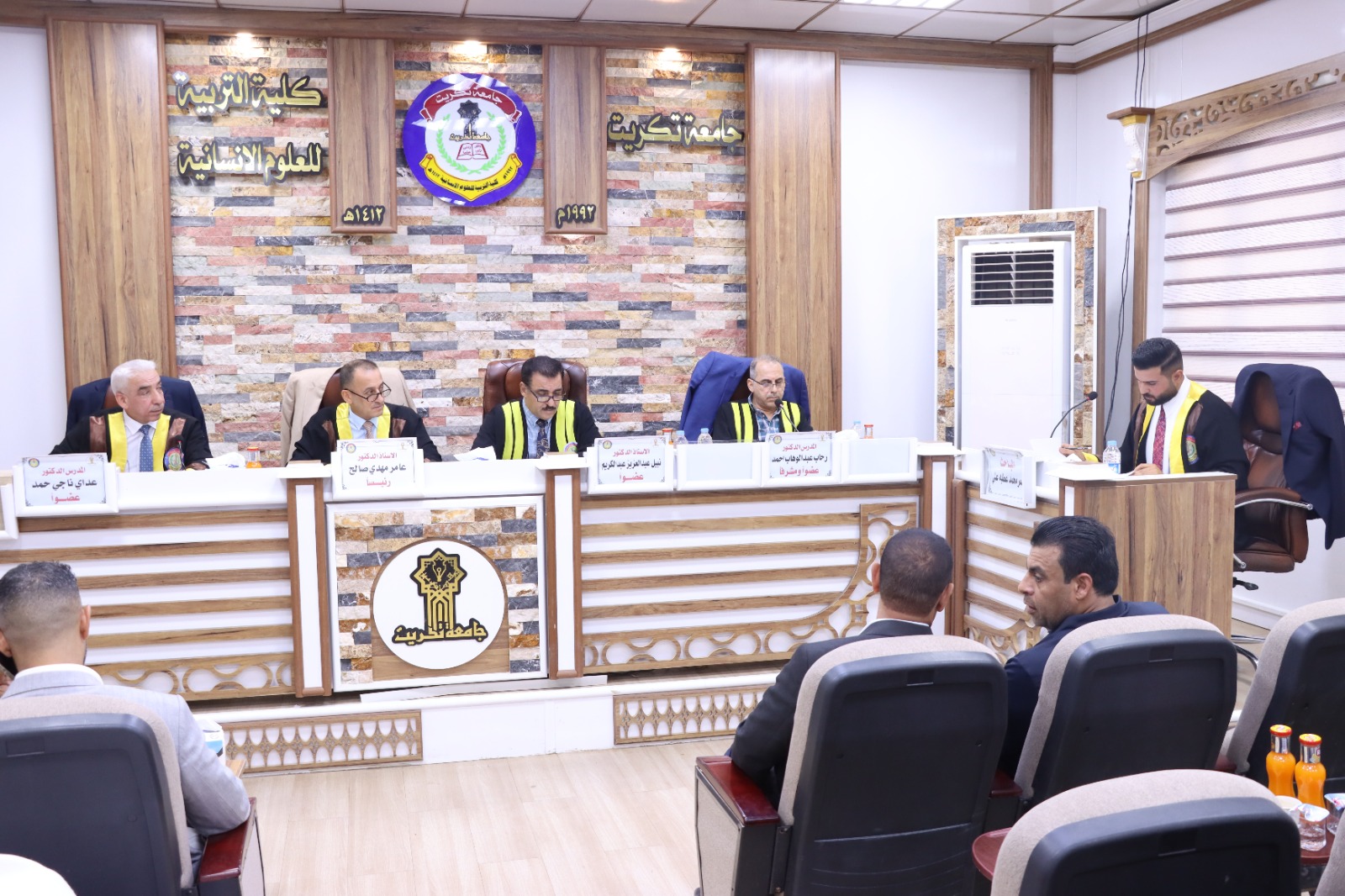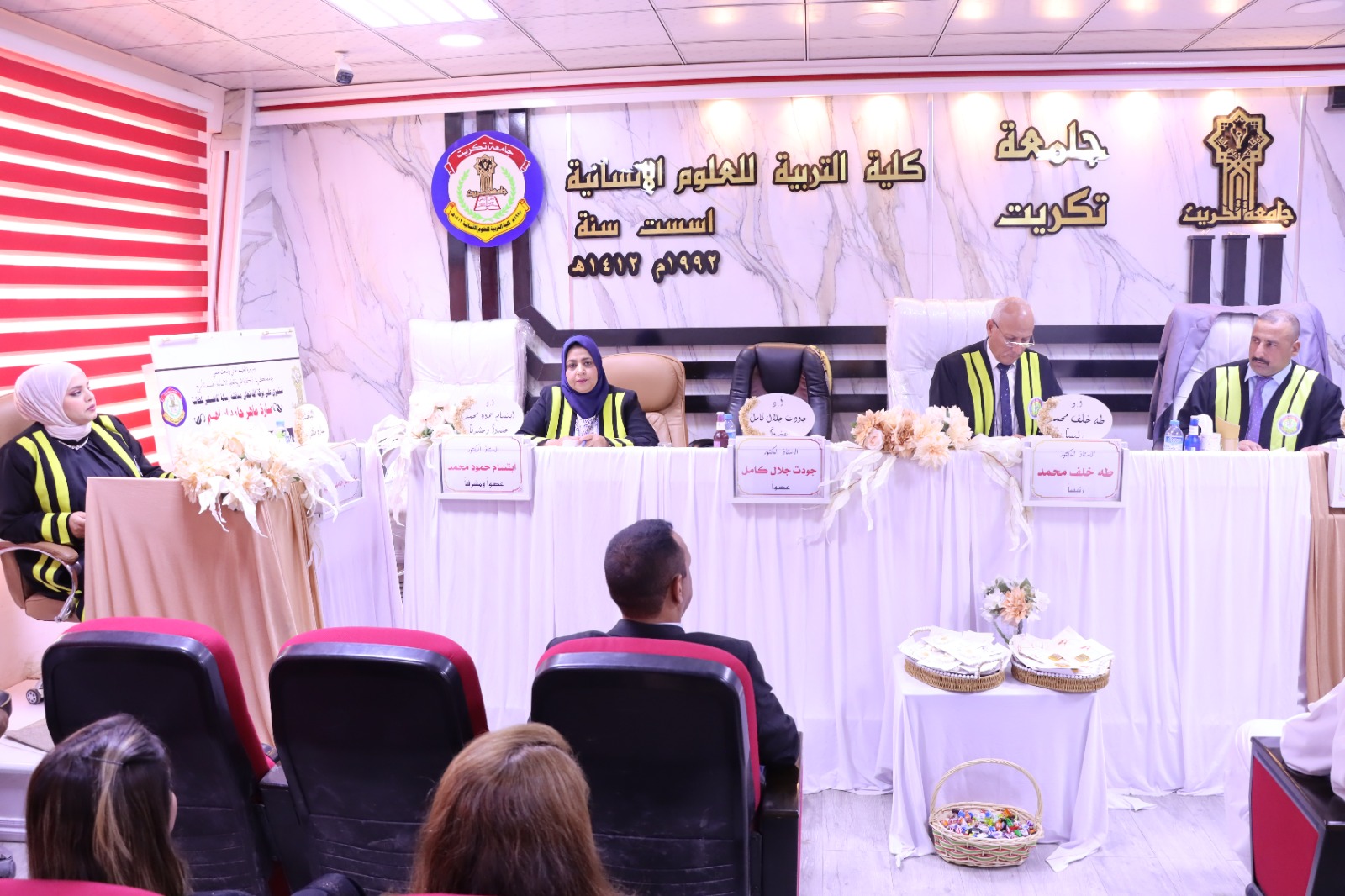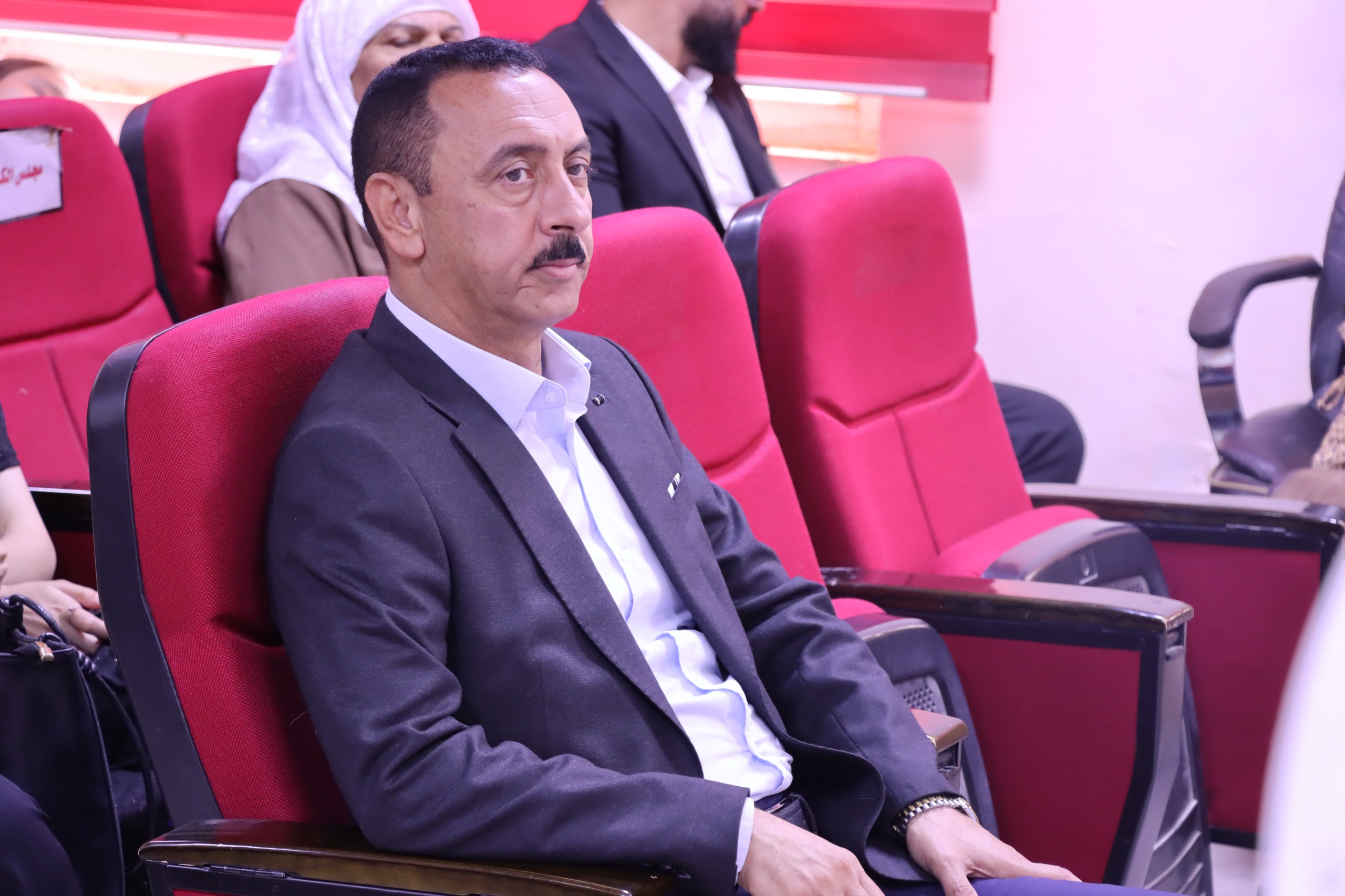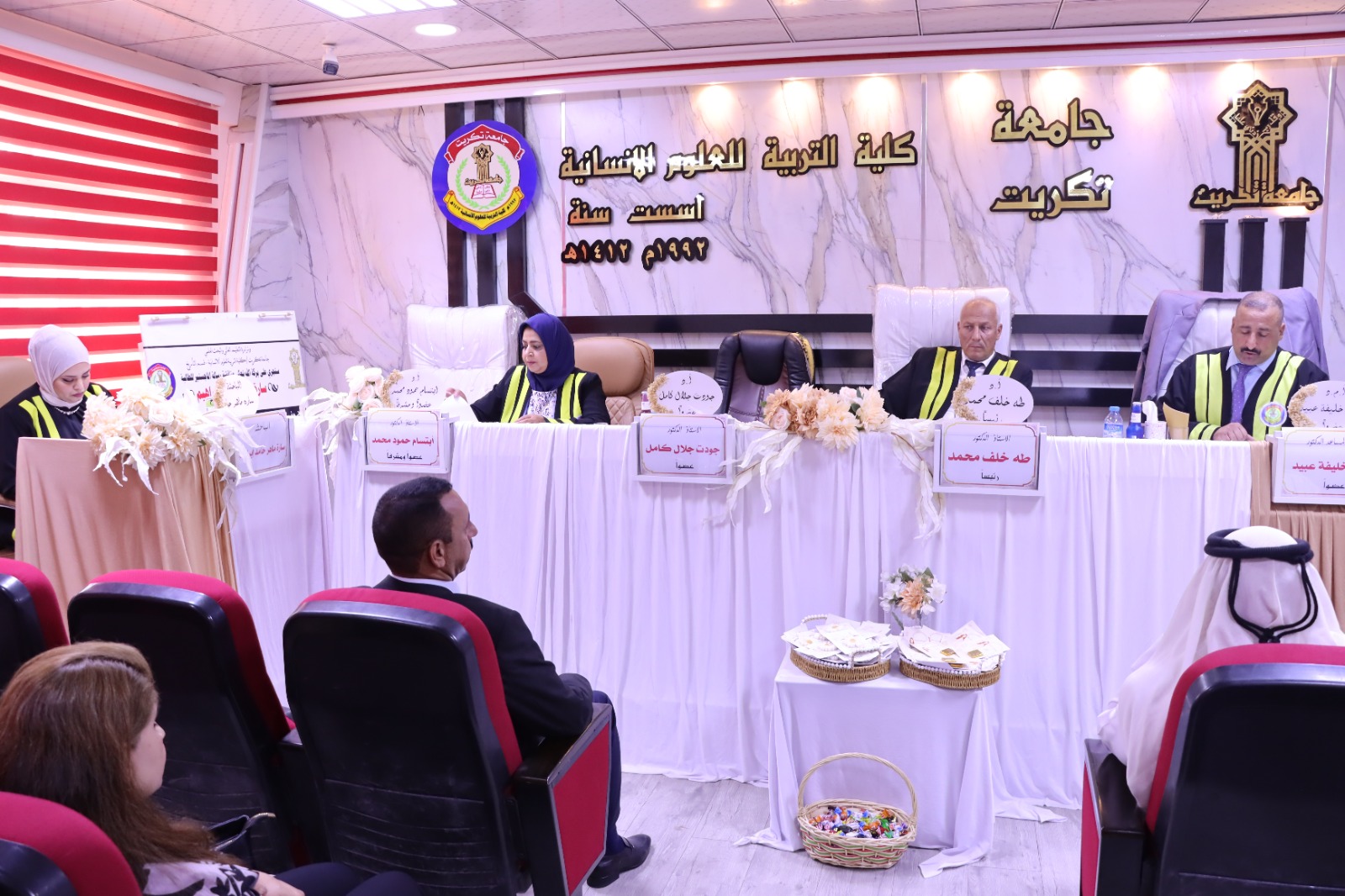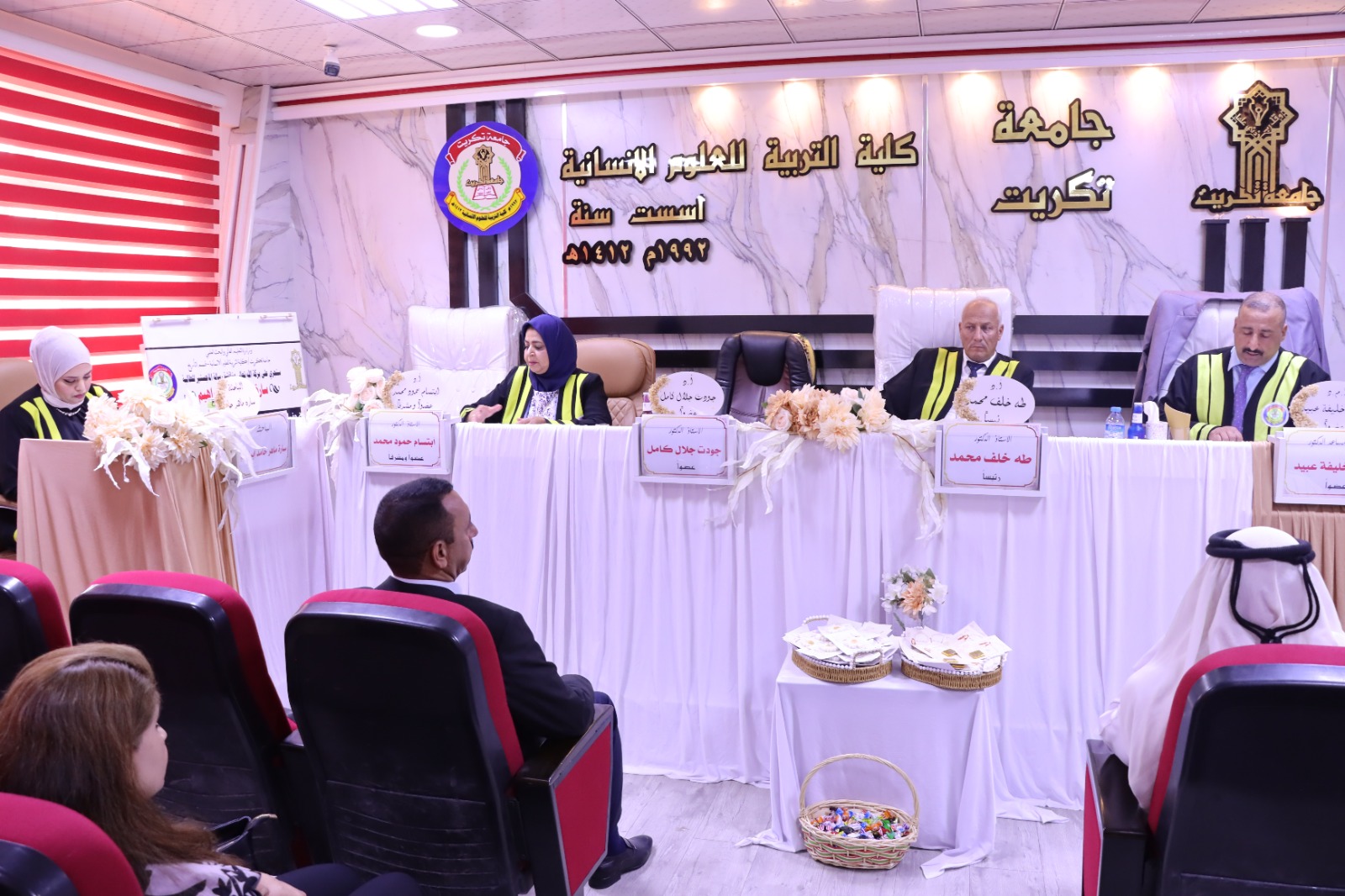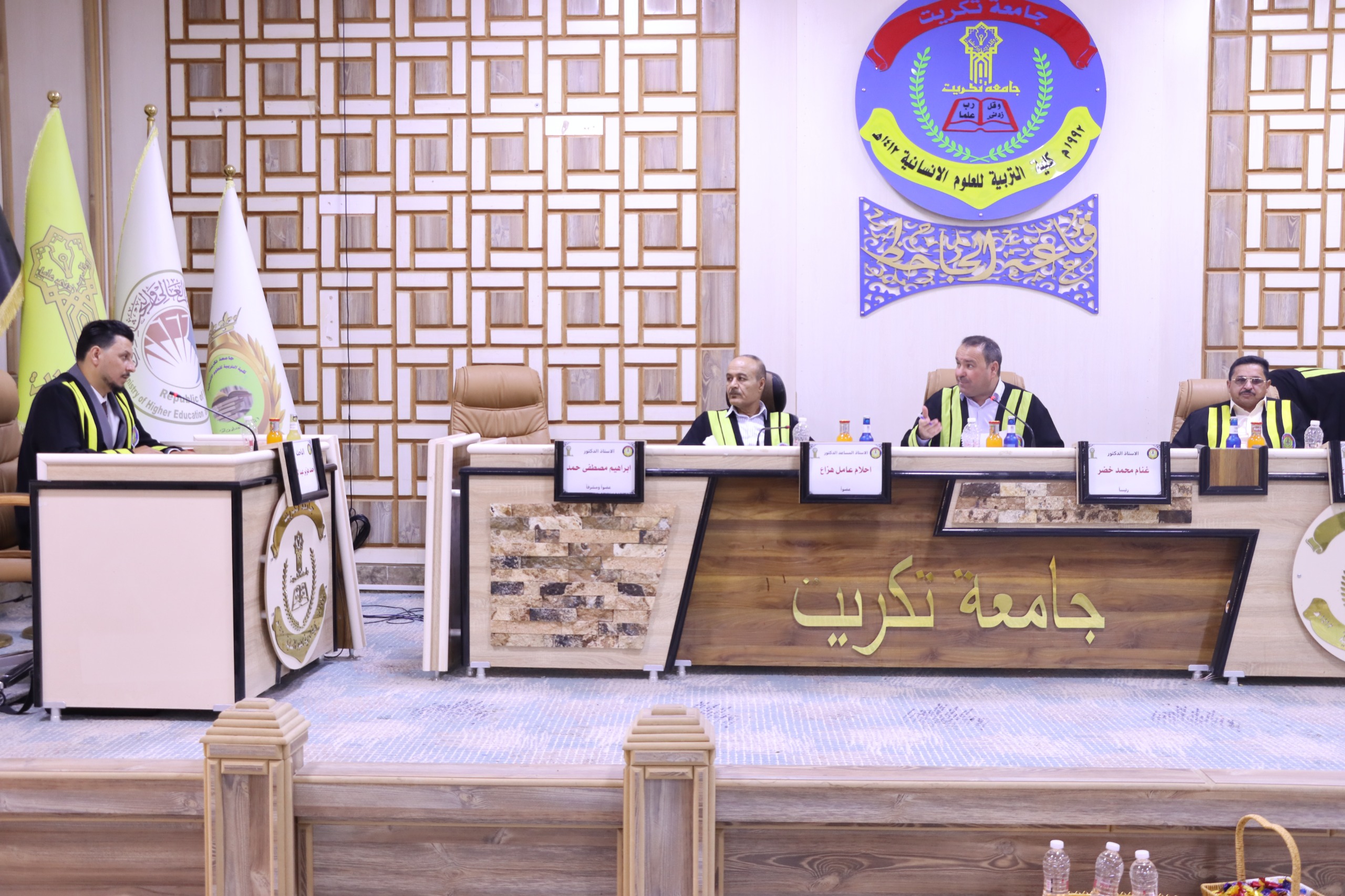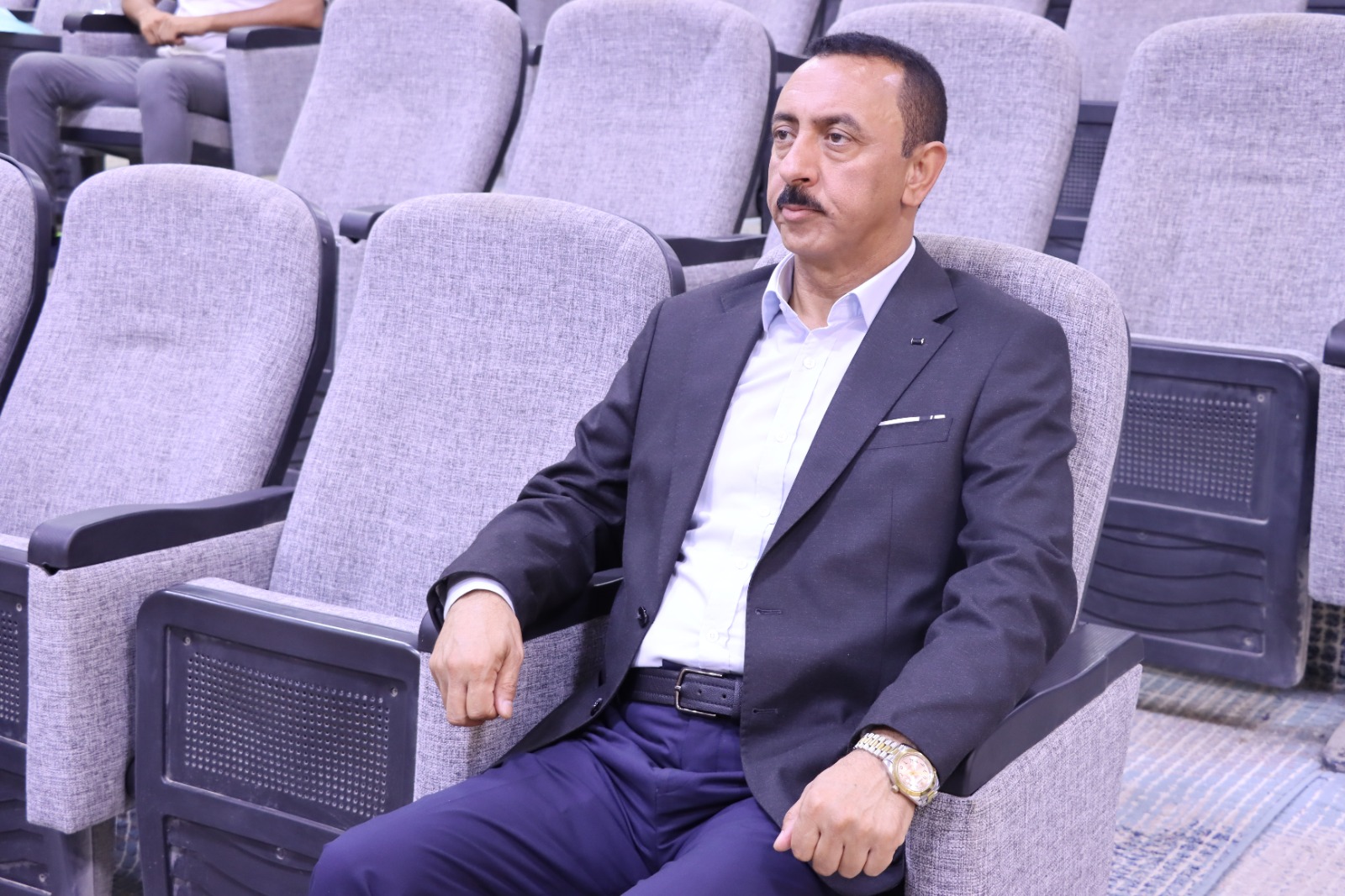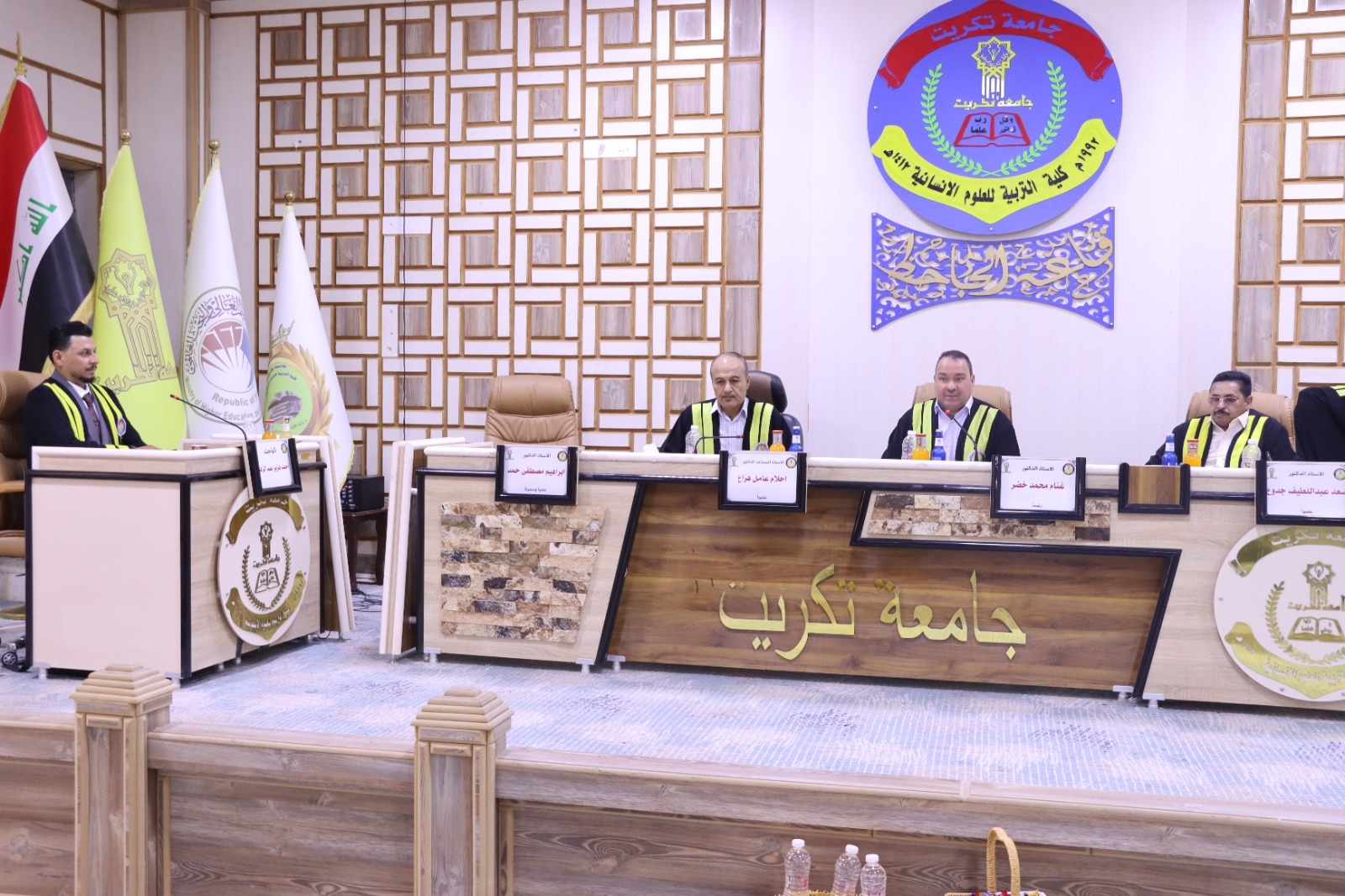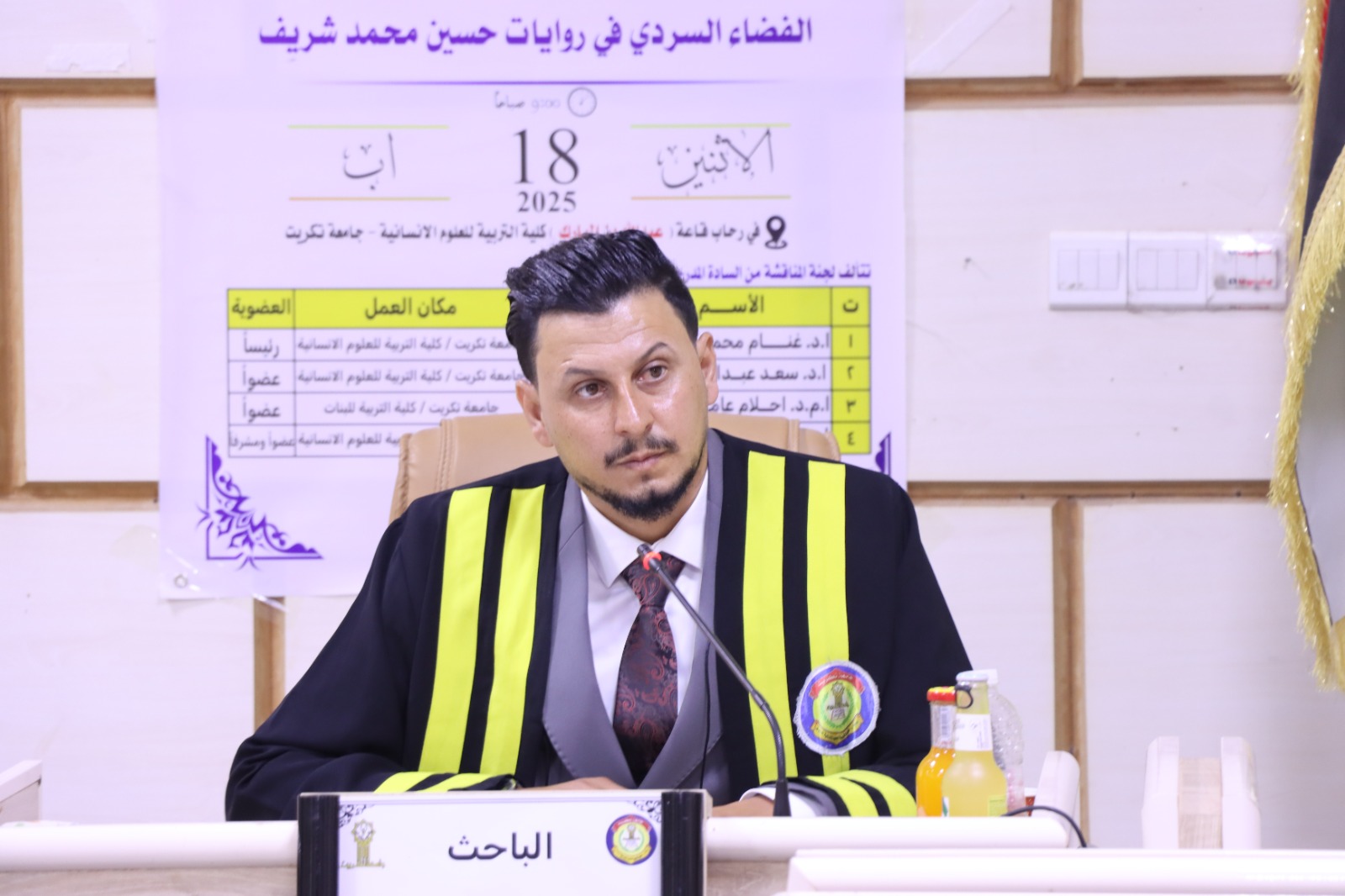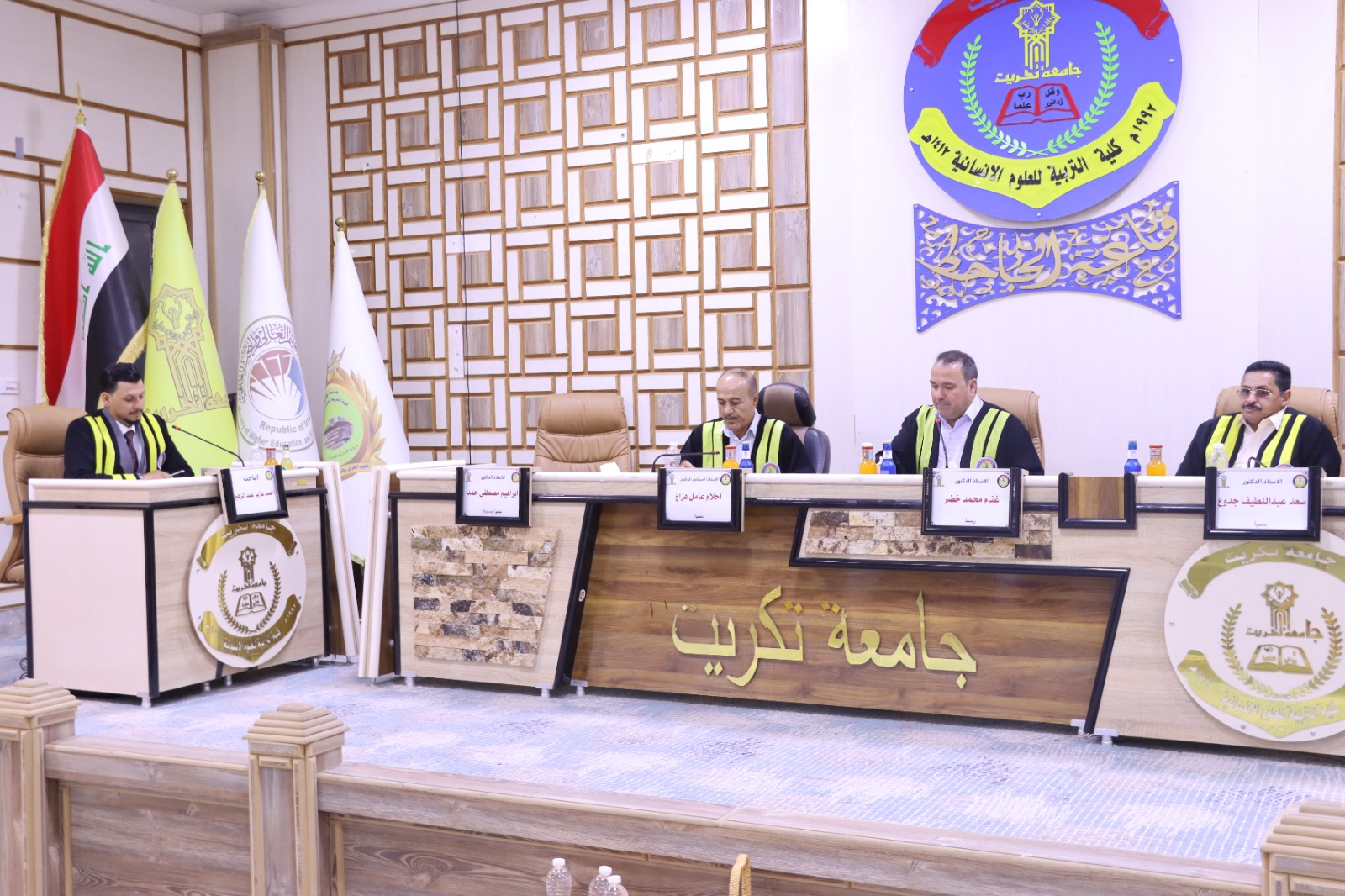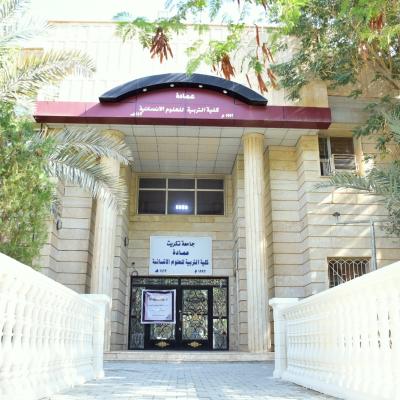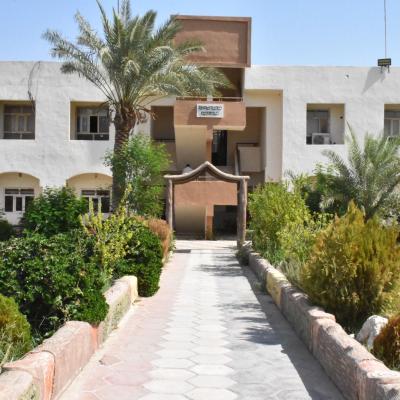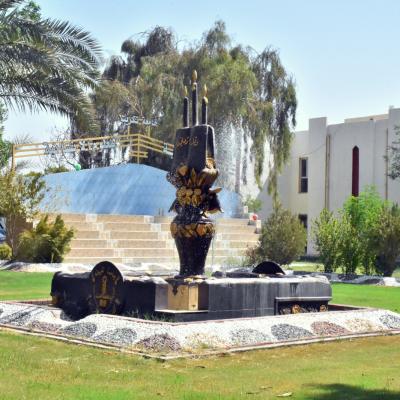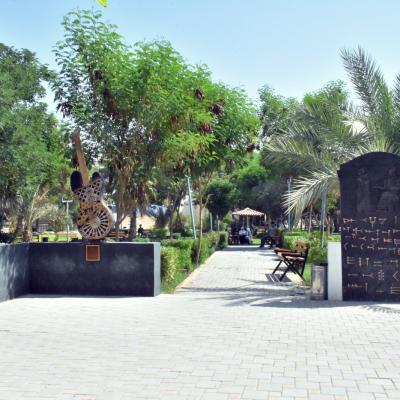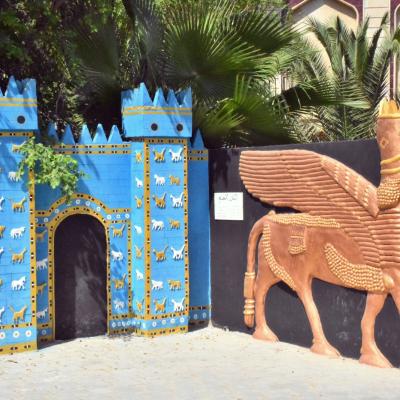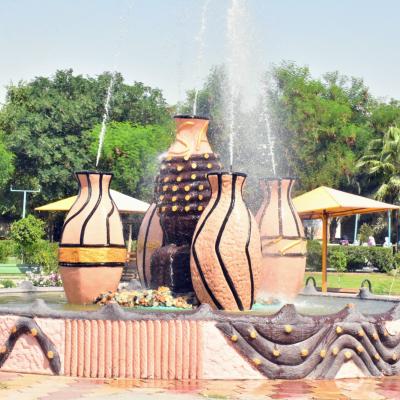On Sunday, November 2, 2025, the Department of History at the College of Education for Human Sciences discussed the master’s thesis submitted by the student Amer Mahmoud Hussein Al-Jubouri, entitled “Ahmad ibn Hajar al-Haytami (D. 974 AH / 1566 AD): His Methodology and Sources in His Book Ashraf al-Wasa’il ila Fahm al-Shama’il.”
Historical studies that focus on historians and their methodologies in writing the Prophet’s biography (al-sīra al-nabawiyya) represent one of the most significant areas of research in clarifying the fundamental features of Arab-Islamic history. They contribute to establishing the foundations for documenting the events of the Prophet’s life, including his noble traits and characteristics (peace be upon him). Such studies necessitate examining the approaches and writing styles of historians to reveal the creativity and intellectual diversity produced by Arab-Islamic thought in various fields of knowledge and scholarship.
The study reached several conclusions, including:
- The study highlighted that Ahmad ibn Hajar al-Haytami was distinguished by being attributed to the places where he lived, such as al-Salmanati (after Salmant) and al-Haytami (after the neighborhood of Abu al-Haytham, where he was raised).
- Al-Haytami did not mention his family in any of his numerous works, which, despite their diversity and abundance, are devoid of references to his relatives.
- The study clarified that there are differing opinions regarding the exact year of al-Haytami’s birth, as well as discrepancies concerning the year of his death.
- It confirmed that after settling in Mecca, al-Haytami held several positions, including teaching and issuing legal opinions (fatwas).
- The study showed that al-Haytami studied under numerous scholars and did not confine his pursuit of knowledge to a single teacher.
The discussion committee consisted of the following faculty members:
- Prof. Dr. Mohammed Ibrahim Abd – University of Tikrit, College of Education for Human Sciences / Chair
- Prof. Dr. Arkan Taha Abd – University of Tikrit, College of Education for Human Sciences / Member
- Prof. Dr. Qabas Farouq Saleh – University of Tikrit, College of Education for Human Sciences / Member
- Prof. Dr. Zainab Khalil Mohammed – University of Tikrit, College of Education for Human Sciences / Member and Supervisor
#Media_and_Government_Communication_Unit – College of Education for Human Sciences – University of Tikrit
